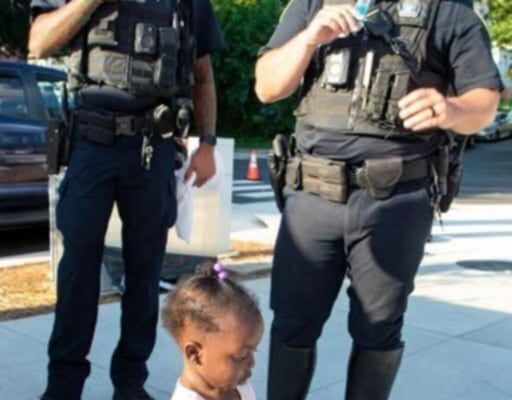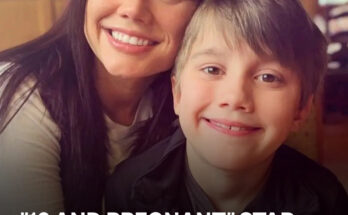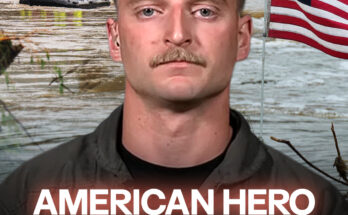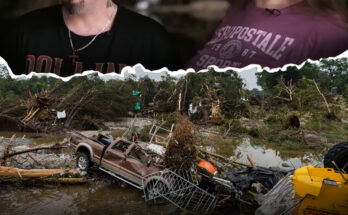It was nearly 90 degrees at the neighborhood block party—music, food trucks, kids running through sprinklers. I was working the community outreach table with two officers, just trying to keep things easygoing. We were there to build trust, not tension.
That’s when a little girl, maybe three or four, walked right up to us. She had a half-melted freezer pop in one hand and a folded piece of paper in the other.
She didn’t say anything. Just handed the note over and kept licking her treat like it was any other summer day.
We smiled at first, thinking it might be a thank-you card or a crayon drawing. But as I opened it, the mood shifted completely.
The note wasn’t from her—it was from her mother.
The handwriting was rushed, but the message was clear. She explained that she could no longer care for her daughter the way she wanted to. She hadn’t been able to find stable housing or enough food, and she didn’t know where else to turn. The block party, she said, was the only place she felt someone might notice her child and make sure she was safe—without judgment or fear.
And at the bottom of the note were the words that hit hardest:
“Her name is Lila. She likes dinosaurs and pancakes.”
We looked around, trying to spot who might have sent her—but no one stood out. Just the usual crowd, smiling and enjoying the day.
Officer Ramirez quietly asked, “What do we do?”
I’ve been in law enforcement long enough to know that not every situation has a clear-cut solution. But when someone asks for help—even in an unconventional way—you answer the call.
I knelt down to Lila’s level and said gently, “Hi, sweetheart. Do you know why your mommy brought you here?”
She shook her head. Calm, quiet, still holding that freezer pop like it was treasure.
Ramirez radioed for assistance while I stayed with her. We grabbed a napkin and cleaned up her sticky fingers, then offered her a chair. She climbed up and sat beside me, swinging her legs, totally unaware of how serious the moment was.
To ease the silence, I asked, “So… dinosaurs, huh? Which one’s your favorite?”
“T-Rex,” she answered. “He’s strong.”
“He sure is,” I said, smiling. “Just like you.”
Soon, a social worker arrived. She was kind and calm, explaining that Lila would stay with a local foster family trained for emergency care. Our focus shifted to finding out who her mother was and how we could help—not just with answers, but with real support.
The search wasn’t easy. No one at the event recognized Lila, and nearby shelters had no leads. Weeks went by, and still no sign of her mother. But we didn’t give up.
Then one day, Officer Ramirez came flying into the precinct with news: he’d found her.
Her name was Marisol. She had been living in her car, doing everything she could to stay safe and out of sight. After leaving Lila with us, she’d gone to a clinic seeking help for her health and well-being, but waitlists and lack of resources had made it tough. Still, she had never stopped hoping her daughter would be cared for.
When we met Marisol, she was quiet, emotional—but open. She shared her story: how she lost her job during the pandemic, how her family lived far away and couldn’t help, how she had gone without so Lila wouldn’t have to.
“I just wanted her to be okay,” she said. “Even if I couldn’t be the one to do it.”
But then something remarkable happened.
Instead of separating them permanently, social services offered Marisol a new path—a chance to rebuild with support. They connected her to housing programs, job training, and counseling. Lila stayed with the foster family during this time, visiting Marisol often.
And she didn’t waste a moment.
Marisol showed up for every session. She found part-time work, secured a safe place to live, and stayed fully committed. Little by little, she rebuilt a stable life—and by the end of the trial period, she was ready to bring her daughter home.
About a year after that day at the block party, I was invited to Lila’s fifth birthday party. She ran up with a big hug and a balloon shaped like a T-Rex.
“You saved me!” she said.
I knelt down and smiled. “Your mom saved you, kiddo. She’s the strong one.”
Marisol stood nearby, holding a plate of pancakes topped with dinosaur-shaped sprinkles. And for the first time, she looked truly at peace.
Life doesn’t always go the way we plan. But strength can come from asking for help. Love doesn’t mean having all the answers—it means doing your best, even when it’s hard.
If this story moved you, share it with someone who might need to hear that hope is never out of reach. ❤️



